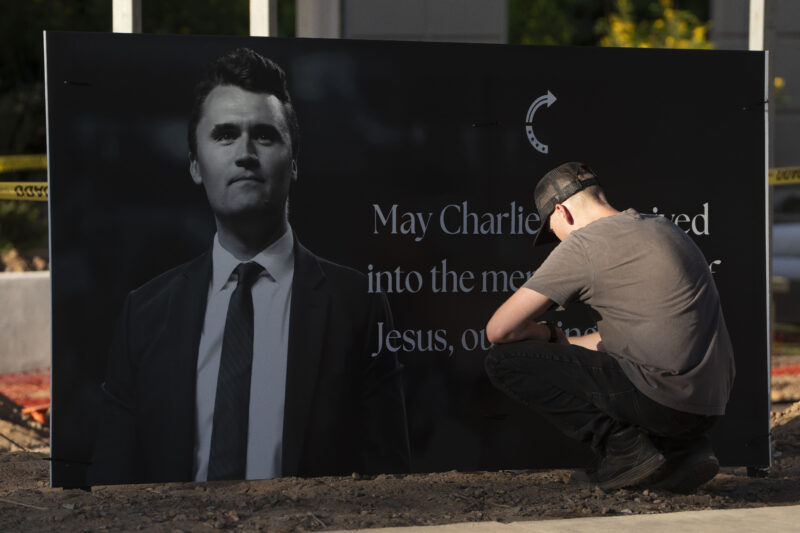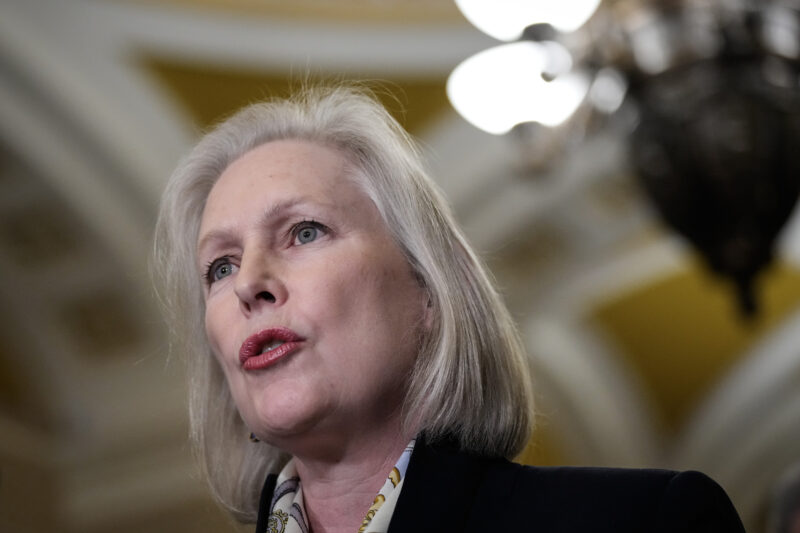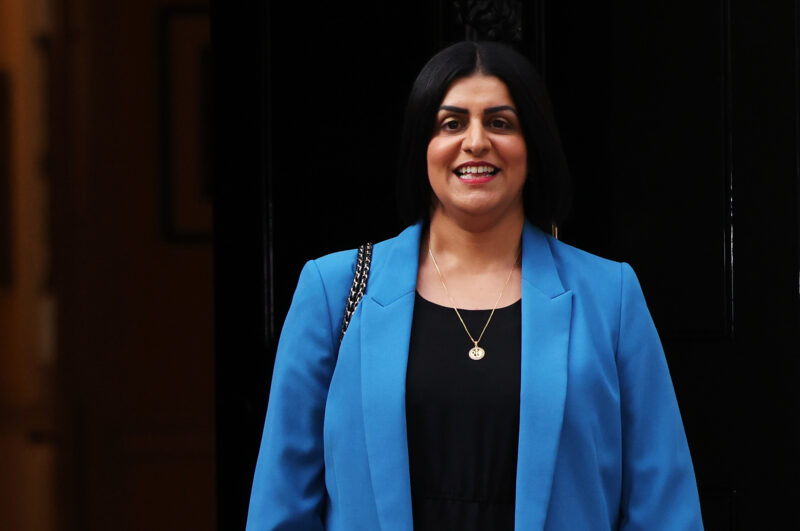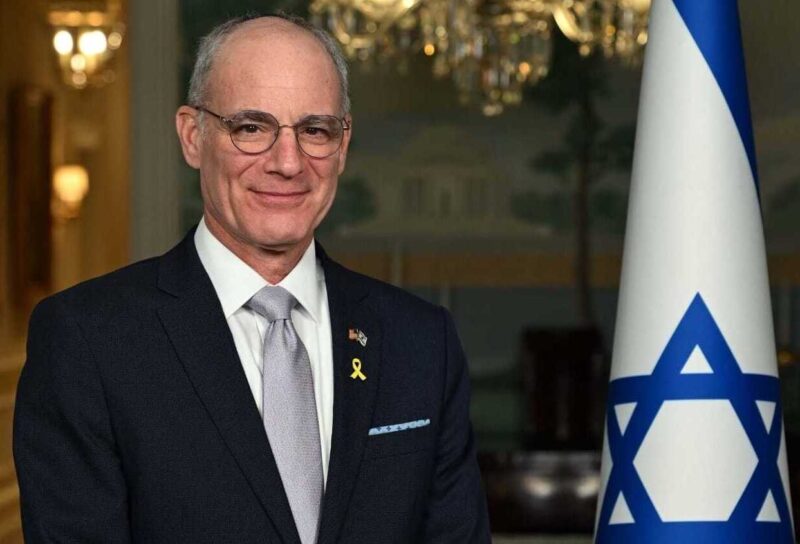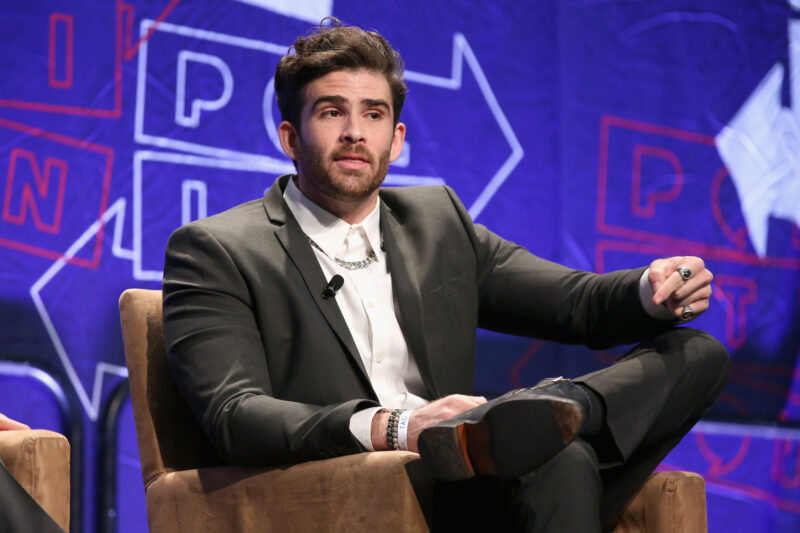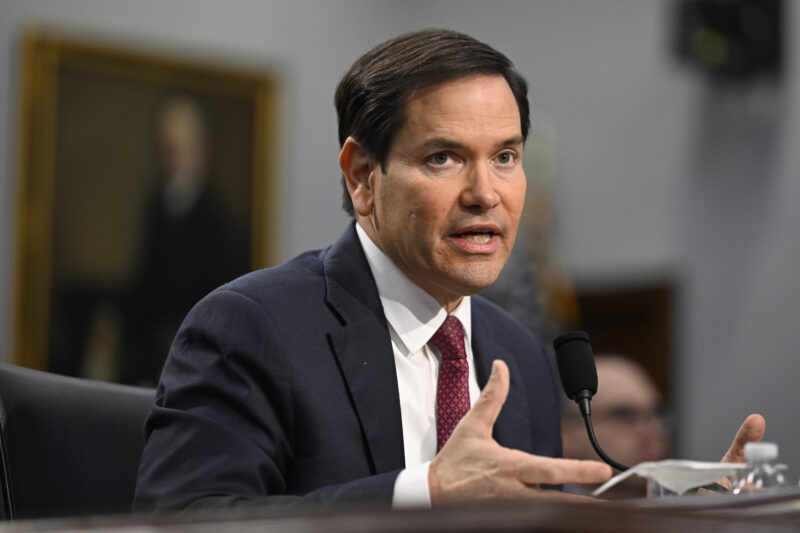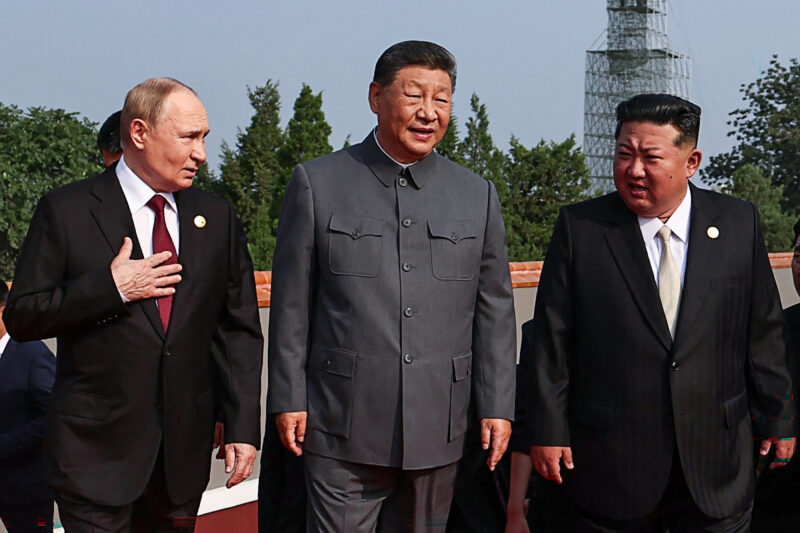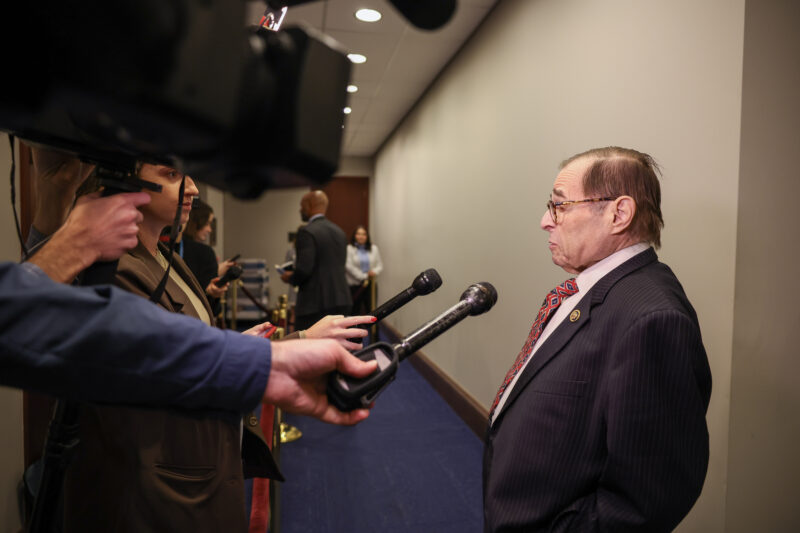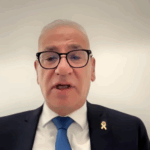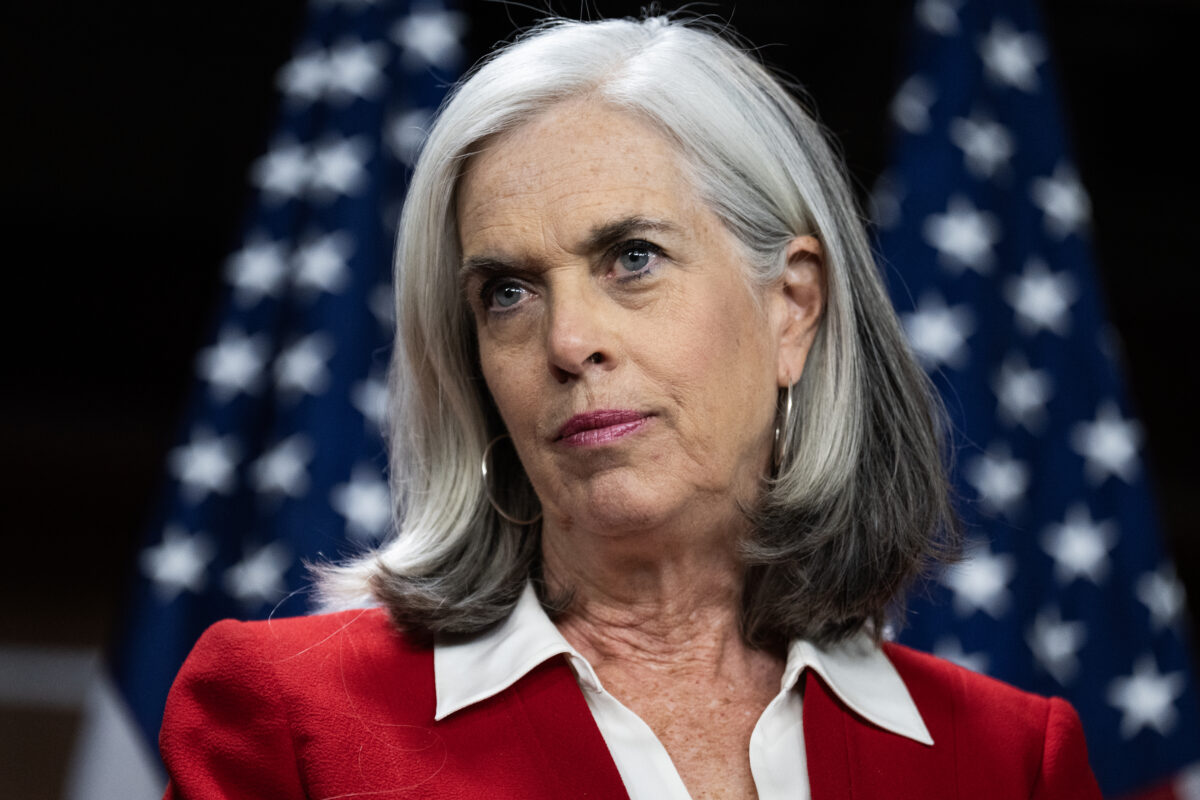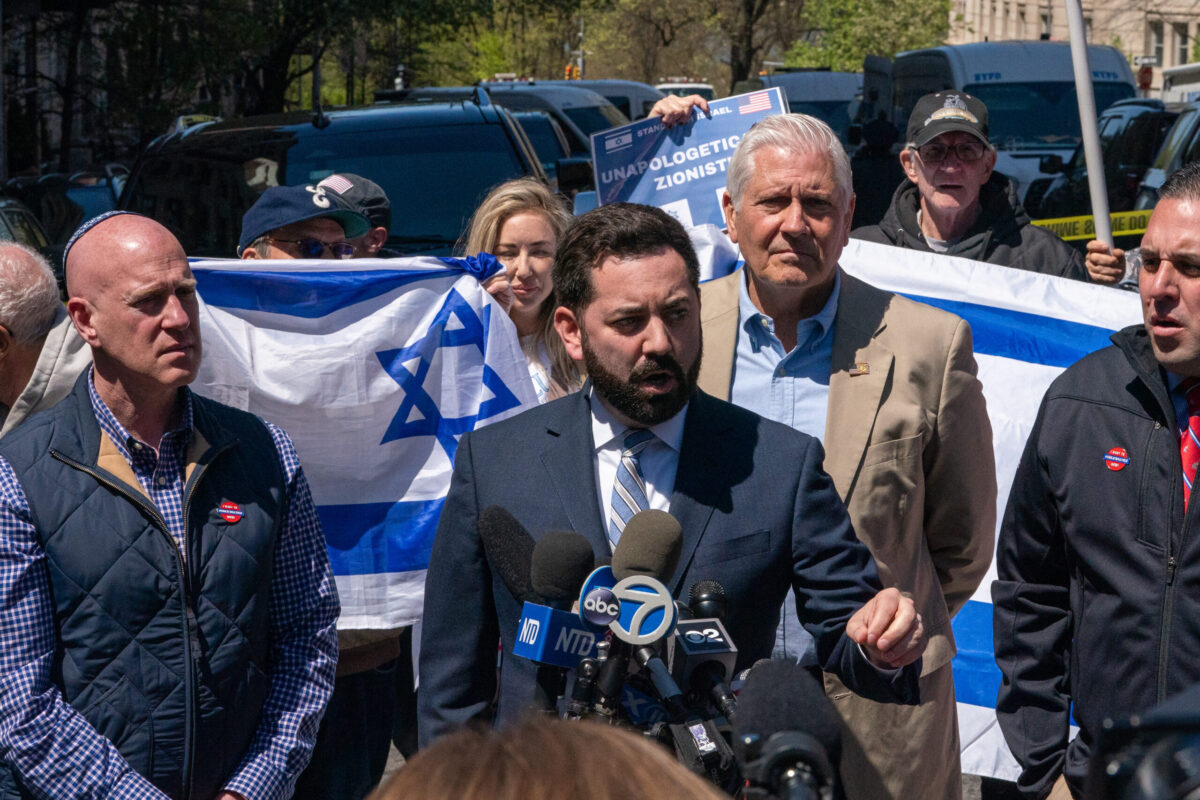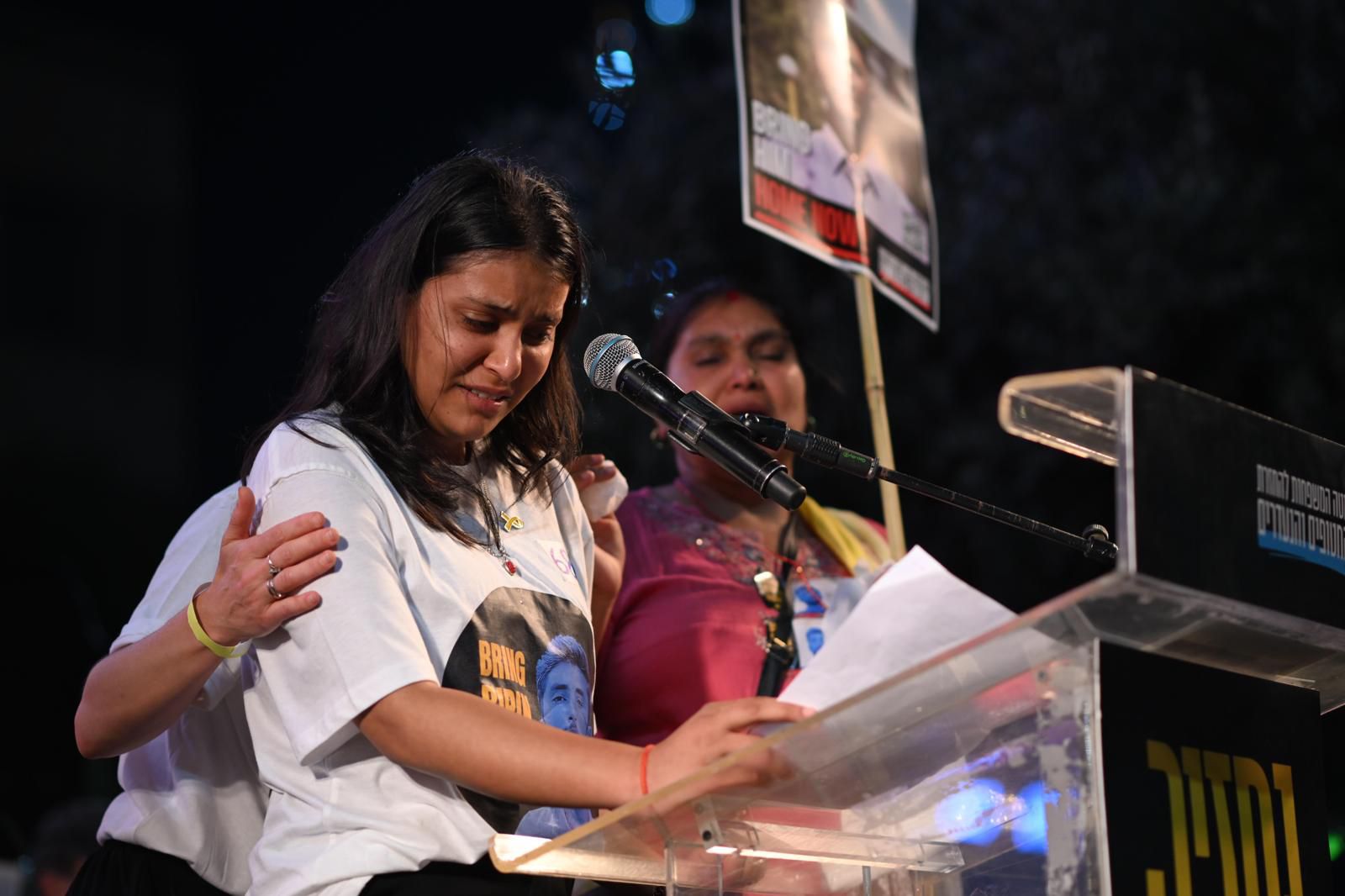Plus, the two-finger hustle that impressed Ari Emanuel

Senate Television via AP
In this image from video, House impeachment manager Rep. Jamie Raskin, D-Md., becomes emotional as he speaks during the second impeachment trial of former President Donald Trump in the Senate at the U.S. Capitol in Washington, Tuesday, Feb. 9, 2021.
Good Monday morning.
In today’s Daily Kickoff, we report on yesterday’s strikes across Israel to call attention to the plight of the remaining 50 hostages, and report on Rep. Jamie Raskin’s support for the “Block the Bombs” bill that calls for limiting offensive weapons sales to Israel. We cover comments from Rep. Katherine Clark, the No. 2 House Democrat, calling Israel’s actions in Gaza a “genocide,” and report on a new push from leading Jewish organizations for universities to pursue reforms to deal with antisemitism. Also in today’s Daily Kickoff: Mark Shapiro, Larry Fink and Liv Schreiber.
What We’re Watching
- President Donald Trump is convening European leaders at the White House today following his meeting on Friday with Russian President Vladimir Putin. Trump will meet privately with Ukrainian President Volodymyr Zelensky at 1 p.m. ET, followed by a larger meeting with the European heads of state at 3 p.m.
- Leaders expected to be in attendance include U.K. Prime Minister Keir Starmer, Italian Prime Minister Giorgia Meloni, French President Emmanuel Macron, German Chancellor Friedrich Merz, President of the European Commission President Ursula von der Leyen and NATO Secretary-General Mark Rutte.
- Qatari Prime Minister and Foreign Minister Mohammed Al Thani is meeting with senior officials in Cairo today to discuss a new ceasefire proposal. The trip comes days after Al Thani met in Doha with Mossad head David Barnea.
What You Should Know
A QUICK WORD WITH JI’S TAMARA ZIEVE
The unrest could be felt everywhere — in traffic jams, on the airwaves, in WhatsApp groups, even in the waiting room of a dental clinic.
Across Israel yesterday, hundreds of thousands joined a nationwide unofficial strike, led by hostage families and bereaved families, demanding an end to the war in Gaza and the immediate release of the hostages still held there. According to the Hostages Families Forum, over 1 million people participated in protests throughout the day. As the government plans to escalate its military campaign against Hamas, emotions ran high across towns, cities and online spaces, deepening a national rift.
Police clashed with demonstrators blocking roads. In Ra’anana, a truck driver was arrested after allegedly attacking a protester. In a Tel Aviv neighborhood mothers’ WhatsApp group, several members condemned local cafés for staying open, while another defended them for “not strengthening Hamas.” At a dental clinic, a man berated staff for opening their doors, shouting, “What about the hostages!?”
At the heart of the tensions is a painful divide: Protesters — including the majority of the hostage families — argue that rescuing the captives must come before all else. Meanwhile, the government and its supporters, and even several hostage families, claim such demonstrations weaken Israel’s negotiating hand and embolden Hamas. Israeli President Issac Herzog, speaking at Hostages Square, said, “There’s no Israeli who doesn’t want them back home. We can argue about philosophies, but truly, the people of Israel want our brothers and sisters back home.”
Israeli Prime Minister Benjamin Netanyahu doubled down on his government’s stance in a public statement, warning: “Those who are calling for an end to the war today without defeating Hamas, are not only hardening Hamas’s stance and pushing off the release of our hostages, they are also ensuring that the horrors of October 7 will recur again and again … to advance the release of our hostages and to ensure that Gaza will never again constitute a threat to Israel, we must complete the work and defeat Hamas.”
Yet recent polls show that a majority of Israelis support prioritizing the hostages’ release and bringing an end to the war.
BACKING THE BLOCK
Raskin backs bill severely restricting U.S. arms transfers to Israel
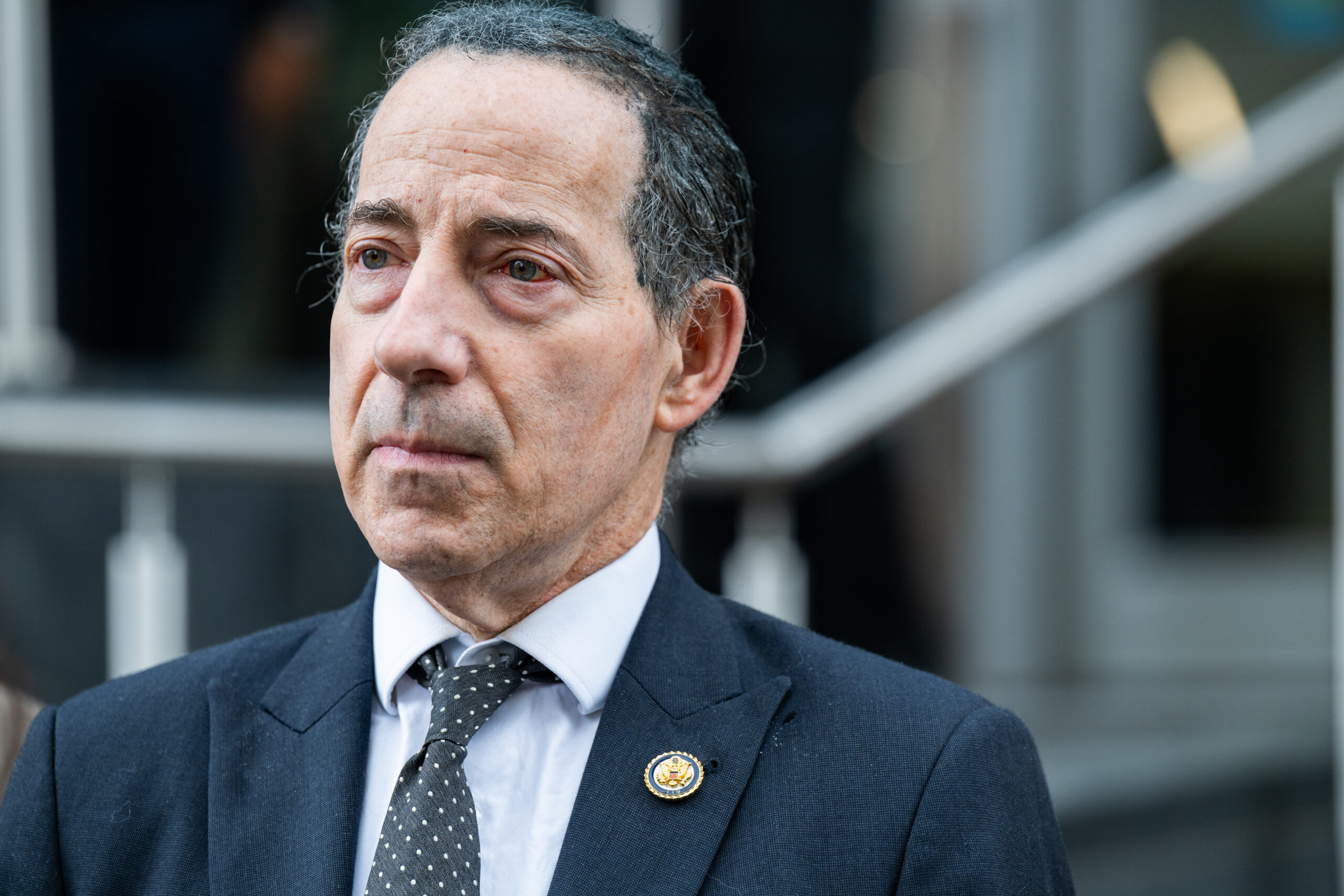
Rep. Jamie Raskin (D-MD), one of the most visible and well-known progressive Jewish lawmakers in Congress, late last week became a co-sponsor of the “Block the Bombs Act,” a bill led by far-left lawmakers that aims to severely restrict U.S. aid to Israel. The bill would impose unprecedented new conditions on weapons sales or transfers to Israel, requiring specific congressional authorization for each individual transfer of various weapons systems, and would require Congress to identify specific purposes for which those weapons would be used, Jewish Insider’s Marc Rod reports.
Arms embargo: Critics say that the bill would effectively constitute an arms embargo for the key weapons in question. Raskin has not issued any statement on his support for the bill, which aligns him with some of the most anti-Israel members of the House, and did not respond to a request for comment. Currently, 32 other lawmakers are co-sponsoring the legislation, but Raskin, the ranking member of the House Judiciary Committee, is among the most recognizable sponsors. Three other progressive Jewish House members, Reps. Sara Jacobs (D-CA), Becca Balint (D-VT) and Jan Schakowsky (D-IL), are also backing the bill.




